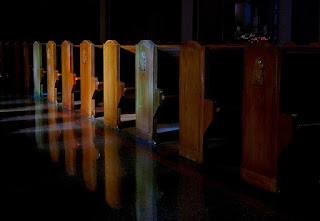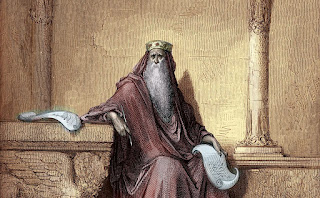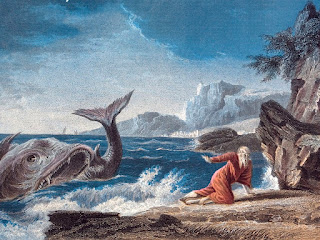Having described evil as the "voluntary rejection of the process that makes life tolerable," Peterson continues his reflections about the Satan archetype. Specifically, outside sociopaths, why would anyone make choices like these? Why choose evil? Why choose to make life harder rather than easier?
Well, as Peterson describes, facing reality is "truly horrible and terrifying." Facing the unknown is scary. Change can be very hard.
After I got my graduate degree in psychology, I worked for four years in an inpatient psychiatric hospital. And one of the truly tragic things I observed is how, after discharge, people would return to dysfunctional situations. Addicts would return to their friend group who used drugs. Abuse victims would return to their abusers. All this led me to a fundamental psychological insight: "The brain craves predictability more than happiness."
Adaptively speaking, the brain doesn't care if you're happy and fulfilled. The brain's number one job, forged in the fires of Darwinian evolution, is to keep you alerted to threats, keeping you alive. And key to that success is living in an environment that is known and predictable. And so, upon discharge, my patients would return to the known, even if the known was unhappiness. We'll choose the unhappiness we know over the possibility of joy. The brain defaults to the predictable.
Peterson commenting on this,
We have been granted the capacity for constant transcendence, as an antidote, but frequently reject that capacity, because using it means voluntarily exposing ourselves to the unknown. We run away because we are afraid of the unknown...
We also reject the unknown by clinging too closely to habit and social conventions. We stick too close to the group, fearing we'll stand out as distinctive individuals. For example, I find it baffling how the younger generation, who claim to prize individuality and authenticity, willingly become "followers" of social media "influencers." I mean, if you prize being an individual so much why are you always following, following, following? Rebels aren't followers. And why in the world would you follow anyone called an "influencer"? Wouldn't a true individual
resist being influenced?
But let's not throw the kids under the bus. We adults are just as bad. We have our own forms of social conformity.
But again, these choices aren't happening consciously. We don't self-identify as lemmings and sheep, even though we are behaving that way. We avoid this reality, Peterson says, by lying to ourselves:
The individual who fails to modify his habits and presumptions as a consequence of change is deluding himself--is denying the world--is trying to replace reality itself with his own feeble wish. By pretending things are other than they are, he undermines his own stability, destabilizes his future, and transforms the past from shelter to prison.
The individual embodiment of collective past wisdom is turned into the personification of inflexible stupidity by means of the lie. The lie is straightforward, voluntary rejection of what is currently known to be true. Nobody knows what is finally true, by definition, but honest people make the best possible use of their experience. The moral theories of the truthful, however incomplete from some hypothetical transcendent perspective, account for what they have seen and for who they are, insofar as that has been determined in the course of diligent effort.
A couple of observations.
First, I'd quibble with Peterson's characterization of the lie as "straightforward, voluntary rejection of what is currently known to be true." I don't think it's so straightforward. I think self-deception is more unconscious, a defense mechanism. To be sure, to the outside observer, the person in the grip of a deception looks to be willfully rejecting the facts staring them in the face. But on the inside of the deception people think they are, in fact, seeing the truth. And that's what makes the deception so hard to refute or dispel. Few people believe things they know to be untrue.
Second, as observed in last week's post, we see here again that agonistic theme in Peterson's work, how rejecting the lie and facing the terrible truth is "determined in the course of diligent effort." We have to act heroically to break out the "prison." Don't exchange a terrifying truth for a "feeble wish." Be the hero!
But lastly, there is here another convergence between Peterson's thought and Christianity.
Specifically, in the Bible Satan is described as "the father of lies." And in 2 Corinthians 4, Paul writes that "the god of this age has blinded the minds of unbelievers, so that they cannot see the light of the gospel."
Satan's work is often perceptual and epistemological. Scott Peck famously highlighted this aspect of the satanic in the title of his best-selling book
"The People of the Lie." In Scripture, spiritual freedom and imprisonment is often described as an epistemological struggle, the most famous example being from Jesus himself:
"You will know the truth, and the truth will set you free."






















